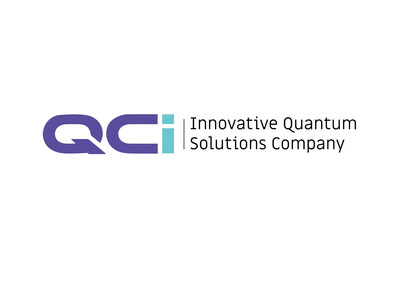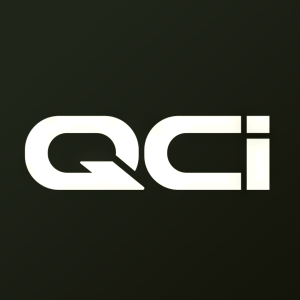Quantum Computing Inc. Congratulates Achievement as its Engineers Receive Prestigious Edison Patent Award for Groundbreaking Quantum Cybersecurity Invention
The Edison Patent Award, a symbol of innovation and excellence, is a testament to the commitment, expertise, and innovation demonstrated by Dr. Yuping Huang, OCi's Chief Quantum Officer and Dr. Lac Thi Thanh Nguyen, the Quantum Technology Lead for QCi's Cybersecurity platform. Their critical work has significantly advanced Quantum Computing Inc's mission to harness the power of quantum technologies for real-world applications.
The patent underlying the award represents a milestone in the field of quantum information networks, a critical domain in the ongoing battle against cybersecurity threats facing industry, government, and individuals. The patent, which was granted approval in
In contrast to quantum key distribution which only protects encryption, this breakthrough patent fills a critical security breach vulnerability by offering a way to effectively secure identity authentication, data mining, and digital assets in an untrusted environment. Designed to be compatible with existing fiber-based communication infrastructure and satellite-based networks, the patent is a broad-use award based on a fundamental methodology for secure networking among multiple parties, uniquely combining quantum authentication and encryption in a single step and thereby safeguarding an entire network at all points of slippage.
The patent was exclusively licensed to QCi with perpetual terms. For rapid commercialization, QCi has recently built a two-node quantum authentication system, leveraging the engineering skills that Huang and Nguyen acquired when they and team built a pilot three-node quantum network system over a university campus in 2018.
"Quantum Computing Inc. salutes our esteemed engineers. In an era where digital security is paramount, Drs. Huang and Nguyen have played a pivotal role in developing a method of quantum authentication that promises to revolutionize data protection and privacy. Until now, there was no end-to-end quantum solution to defend the security of our digital assets against AI or quantum computer attacks in the coming future. The integration of this comprehensive quantum protocol with quantum key distribution holds the promise of establishing a robust quantum-secured communication system that safeguards the internet for everyone," commented Robert Liscouski, CEO of Quantum Computing Inc. "The company is proud to be at the forefront of quantum technology advancements, providing solutions that address the evolving challenges of cybersecurity, and we remain committed to pushing the boundaries of quantum technology and providing innovative solutions to complex global challenges."
For additional information on the Company's suite of solutions, please visit our website or contact our team directly.
About Quantum Computing Inc. (QCi)
Quantum Computing Inc. (QCi) (Nasdaq: QUBT) is an innovative, quantum optics and nanophotonics technology company on a mission to accelerate the value of quantum computing for real-world business solutions, delivering the future of quantum computing, today. The company provides accessible and affordable solutions with real-world industrial applications, using nanophotonic-based quantum entropy that can be used anywhere and with little to no training, operates at normal room temperatures, low power and is not burdened with unique environmental requirements. QCi is competitively advantaged delivering its quantum solutions at greater speed, accuracy, and security at less cost. QCi's core nanophotonic-based technology is applicable to both quantum computing as well as quantum intelligence, cybersecurity, sensing and imaging solutions, providing QCi with a unique position in the marketplace. QCi's core entropy computing capability, the Dirac series, delivers solutions for both binary and integer-based optimization problems using over 11,000 qubits for binary problems and over 1000 (n=64) qubits for integer-based problems, each of which are the highest number of variables and problem size available in quantum computing today. Using the Company's core quantum methodologies, QCi has developed specific quantum applications for AI, cybersecurity and remote sensing, including its Reservoir Photonic Computer series (intelligence), reprogrammable and non-repeatable Quantum Random Number Generator (cybersecurity) and LiDAR and Vibrometer (sensing) products. For more information about QCi, visit www.quantumcomputinginc.com.
The Edison Patent Awards
For more than 40 years, the Research & Development Council of New Jersey has recognized and highlighted the broad array of research conducted in the state and celebrated its exceptional inventors in an annual award ceremony named for Thomas Alva
Important Cautions Regarding Forward-Looking Statements
This press release contains forward-looking statements as defined within Section 27A of the Securities Act of 1933, as amended, and Section 21E of the Securities Exchange Act of 1934, as amended. By their nature, forward-looking statements and forecasts involve risks and uncertainties because they relate to events and depend on circumstances that will occur in the near future. Those statements include statements regarding the intent, belief or current expectations of QCi and members of its management as well as the assumptions on which such statements are based. Prospective investors are cautioned that any such forward-looking statements are not guarantees of future performance and involve risks and uncertainties, and that actual results may differ materially from those contemplated by such forward-looking statements.
QCi undertakes no obligation to update or revise forward-looking statements to reflect changed conditions. Statements in this press release that are not descriptions of historical facts are forward-looking statements relating to future events, and as such all forward-looking statements are made pursuant to the Securities Litigation Reform Act of 1995. Statements may contain certain forward-looking statements pertaining to future anticipated or projected plans, performance and developments, as well as other statements relating to future operations and results. Words such as "may," "will," "expect," "believe," "anticipate," "estimate," "intends," "goal," "objective," "seek," "attempt," "aim to," or variations of these or similar words, identify forward-looking statements. These risks and uncertainties include, but are not limited to, those described in Item 1A in QCi's Annual Report on Form 10-K and other factors as may periodically be described in QCi's filings with the
![]() View original content to download multimedia:https://www.prnewswire.com/news-releases/quantum-computing-inc-congratulates-achievement-as-its-engineers-receive-prestigious-edison-patent-award-for-groundbreaking-quantum-cybersecurity-invention-302037875.html
View original content to download multimedia:https://www.prnewswire.com/news-releases/quantum-computing-inc-congratulates-achievement-as-its-engineers-receive-prestigious-edison-patent-award-for-groundbreaking-quantum-cybersecurity-invention-302037875.html
SOURCE Quantum Computing Inc.







